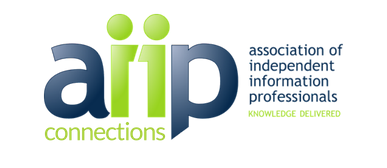Measuring What’s Really Important

Back in March of this year, the topic for AIIP’s monthly Info Pro Café virtual event was “Meaningful Metrics: Measuring What Matters for Infopreneurs.” (The recording and notes are available for AIIP members at https://www.aiip.org/Members-Only/IPC-metrics/; my other thoughts on this topic are at https://www.batesinfo.com/reluctant-entrepreneur/meaningful-metrics/)
That discussion, along with some conversations I have had with coaching clients, got me thinking about some of the less measurable metrics – or at least goals – that help us maintain a good work-life balance and avoid burnout. In addition to bringing in enough revenue to cover our expenses and pay us according to our value, we need to ensure we find satisfaction and fulfillment in our work.
One of the metrics I use is how much free time I have and whether I feel like I have control over how I spend my time. I make sure that I take off at least one half-day a week for local volunteer work or to take a hike during off-peak hours. Sure, that may mean that I am in the office over the weekend, but it’s important to me that I can prioritize my non-work activities. (Speaking of volunteering, remember that AIIP offers lots of satisfying volunteer opportunities that give you a comfortable space to build a new skill.)
Look for opportunities to give away your expertise in a context in which you also find enjoyment. When I am offering a workshop, for example, I always offer free follow-up support for all participants. While at first I was concerned that I would be overwhelmed with requests, I found instead that the people who did contact me after an event always had interesting or thought-provoking questions that I enjoyed addressing. I am rewarded for the small amount of unpaid time on my part by getting to have thoughtful conversations and gain fresh perspectives.
Related to finding non-monetary ways to be paid for your expertise is finding clients with whom you feel a particular kinship. A recent article in Organizational Behavior and Human Decision Processes, “To be or not to be your authentic self? Catering to others’ preferences hinders performance” (https://www.sciencedirect.com/science/article/abs/pii/S0749597817308865), describes a study of entrepreneurs’ success in pitching their ideas to potential investors – not unlike our marketing efforts as solopreneurs. The research found that the entrepreneurs who focused on catering to the investors’ expectations and interests performed worse than those who offered a pitch that felt authentic and genuine. The cognitive burden of attempting to discern the listener’s interests and concerns interferes with our ability to connect with the other person.
My takeaway from this and similar research is that the most effective way to attract clients I enjoy working with is to be my authentic self in all my public spaces. I keep my LinkedIn profile fresh and, yes, I post in Facebook with both business-related thoughts and my landscape photos. While I draw the line at politics, I try to show an authentic version of myself in my writing and speaking, knowing that my style may not appeal to everyone. I would rather attract clients who appreciate my, um, non-corporate approach than try to be the kind of consultant that I think a client wants me to be.
While measuring activities that contribute to the bottom line is important, make sure you are also engaged in activities that compensate you in non-monetary ways. A happy infopreneur is a more effective infopreneur.
Mary Ellen Bates has been an infopreneur since 1991, providing business analysis for strategic decision-makers and consulting services to the information industry. Her passion projects are beekeeping and coaching new and long-time infopreneurs. See more at BatesInfo.com.





